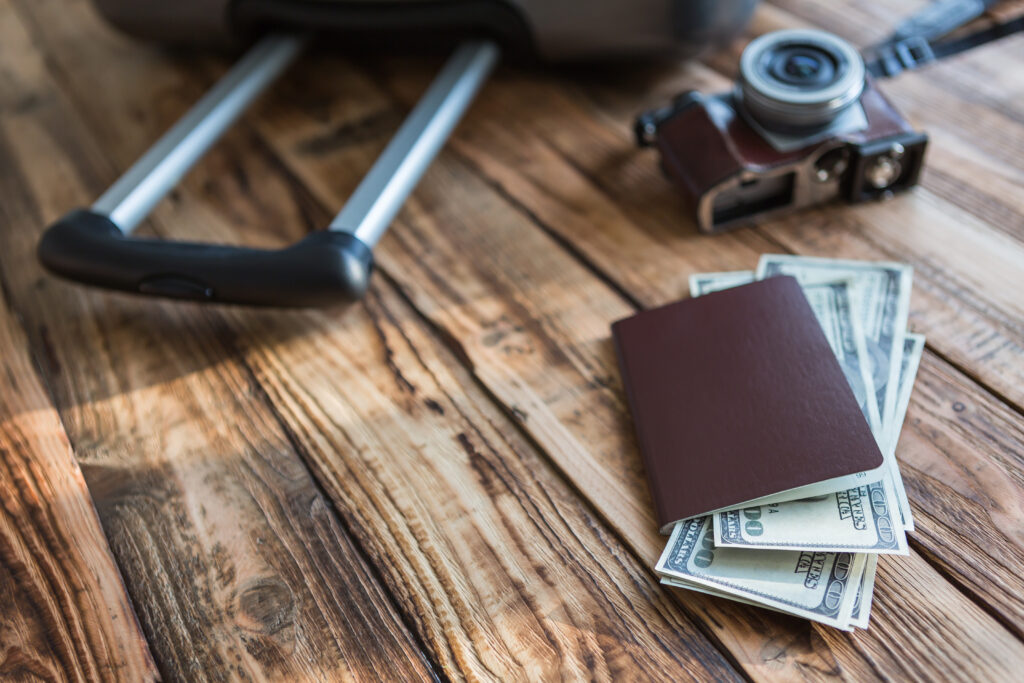This guide lists prices in the local currency and the latest Croatia money tips. However, rates fluctuate, so before departing consult a currency exchange website such as www.xe.com or www.oanda.com/convert/classic to check up-to-the-minute rates.
Currency:
Currently, Croatia’s national currency is the euro. To convert prices in euros to current prices in U.S. dollars, go to www.xe.com/ucc.
After January 1st 2023, the Kuna will no longer be the official currency of Croatia and for 3 weeks following this date, a transition period will begin where people can pay for products using Kuna banknotes and coins, but the change received will be in Euros. Please ensure you exchange your dollars for Euros for a trip to Croatia in 2023. Foreign currency can be exchanged at post offices, banks, and exchange offices. Numerous hotels and travel agencies also will exchange currency, but beware of the service charges, which can be as high as 3%. To convert prices in euros to prices in U.S. dollars, go to www.xe.com/ucc.
ATMs:
The easiest and best way to get cash in Croatia is from an ATM (automated teller machine, aka Bankomat in Croatia). The Cirrus (tel. 800/424-7787; www.mastercard.com) and PLUS (tel. 800/843-7587; www.visa.com) networks span the globe; look at the back of your bank card to see which network you’re on, then call or check online for ATM locations at your destination. Be sure you know your personal identification number (PIN) before you leave home, and be sure to find out your daily withdrawal limit before you depart. Also keep in mind that many banks impose a fee every time a card is used at another bank’s ATM, and that fee can be higher for international transactions ($5 or more) than for domestic ones (where they’re rarely more than $3). On top of this, the bank from which you withdraw cash may charge its own fee. To compare banks’ ATM fees within the U.S., use www.bankrate.com. For international withdrawal fees, ask your bank.
Traveler’s Checks:
You can get traveler’s checks at almost any bank. American Express offers denominations of $20, $50, $100, $500, and (for cardholders only) $1,000. You’ll pay a service charge ranging from 1% to 4%. You can also get American Express traveler’s checks over the phone by calling tel. 800/221-7282; Amex gold and platinum cardholders who use this number are exempt from the 1% fee.
Visa offers traveler’s checks at Citibank locations nationwide, as well as at several other banks. The service charge ranges between 1.5% and 2%; checks come in denominations of $20, $50, $100, $500, and $1,000. Call tel. 800/732-1322 for information. American Automobile Association (AAA) members can obtain Visa checks for a $9.95 fee (for checks up to $1,500) at most AAA offices or by calling tel. 866/339-3378. MasterCard also offers traveler’s checks. Call tel. 800/223-9920 for a location near you.
Foreign currency traveler’s checks are useful if you’re traveling to one country, or to the euro zone; they’re accepted at locations such as bed-and-breakfasts where dollar checks may not be, and they minimize the amount of math you have to do at your destination. American Express, Thomas Cook, Visa, and MasterCard offer foreign currency traveler’s checks. You’ll pay the rate of exchange at the time of your purchase (so it’s a good idea to monitor the rate before you take the plunge), and most companies charge a transaction fee per check order (and a shipping fee if you order online).
Another option is the new prepaid traveler’s check cards, reloadable cards that work much like debit cards but aren’t linked to your checking account. The American Express Travelers Cheque Card, for example, requires a minimum deposit, sets a maximum balance, and has a one-time issuance fee of $15. You can withdraw money from an ATM (for a fee of $2.50 per transaction, not including bank fees), and the funds can be purchased in dollars, euros, or pounds. If you lose the card, your available funds will be refunded within 24 hours.
Credit Cards:
Credit cards are a safe way to carry money. They provide a convenient record of all your expenses, and they generally offer relatively good exchange rates. In Croatia, credit cards are accepted by most hotels and restaurants in larger cities, but they generally are not accepted for private accommodations or in rural areas. In addition, some establishments that accept credit cards will offer a discount if you pay in cash.
You can withdraw cash advances from your credit cards at banks or ATMs, provided you know your PIN. If you’ve forgotten your PIN, or didn’t even know you had one, call the number on the back of your credit card and ask the bank to send it to you. It usually takes 5 to 7 business days, though some banks will provide the number over the phone if you tell them your mother’s maiden name or some other personal information.
Keep in mind that when you use your credit card abroad, most banks assess a 2% fee above the 1% fee charged by Visa or MasterCard or American Express for currency conversion on credit charges. Some credit cards, along with a few debit card providers such as Monzo offer cards that have no currency conversion charges for traveling abroad – it is best to check with your card provider if a service charge is applicable before traveling abroad.
In addition, when I called Visa and MasterCard to alert them I would be using my credit cards abroad, I was warned that I would be charged a 3% service charge on every foreign transaction. Even so, credit cards still may be the smart way to go when you factor in things like exorbitant ATM fees and higher travelers check exchange rates (and service fees).
Visa, MasterCard, Diners Club, and American Express credit cards are accepted in most Croatian establishments that accept plastic. The Maestro debit card is also widely accepted.
Croatia is an affordable country compared to other European destinations. Hotel rooms and rental cars will be your highest expenditures, but food, entertainment, and public transportation costs are well below those of nearby E.U. countries, such as Austria and Italy.

VISA Money Tips
1: Before you leave, note down the number of Visa’s Global Customer Assistance Service (GCAS), a global support network for cardholders that’s available 24 hours a day, every day of the year. Cardholders can call GCAS free from anywhere in the world. In Croatia, you can call 0-800-220-111-866-654-0125. If you experience difficulties using this number, please call collect at +1-303-967-1096.
2: Before leaving check the expiry date on your Visa card and let your bank know you’ll be using your card abroad.
3: Withdrawing cash from an ATM in another country is exactly the same as it is at home – you use the same card and PIN – but the machine will dispense local currency. To find your nearest ATM while abroad, use the ATM locator at www.visa.com.
4: Visa cards are a global currency, so it doesn’t matter if you have a chip-based or a magnetic stripe card – you can use it anywhere. If you are using your chip card while abroad, you may be asked to provide a signature instead of a PIN.
5: Visa is committed to providing cardholders with a safe, convenient and cost-effective way to pay when traveling internationally. To see the competitive rate you may receive when using your Visa card abroad, use the Visa exchange rate converter.
6: While traveling, it’s a good idea to have a mix of cash and cards available – that way you’ll have something to fall back on in the case of an emergency. For safety, don’t keep them all in the same place.
7: Credit cards are a great way to pay for larger expense items like your hotel accommodation or car hire. Just remember that in many hotels the amount will be taken off your daily spending limit, which may impact how much of your limit is left for other purchases.
8: Before you leave, check whether your Visa cards are subject to any daily spending or withdrawal restrictions while you are abroad. Also, make sure you have enough funds in your account and that your card payments are up to date.



 English
English French
French
